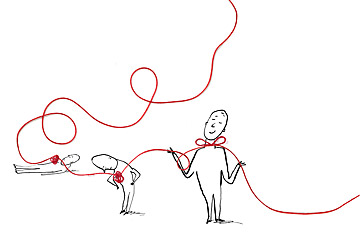
(5 of 7)
Says Abelson: "The neural system that defines what we call anticipatory anxiety--the ability to predict possible negative consequences and prepare for them by worrying--shares circuitry with but also has separate pathways from the circuitry that drives fear itself." Engaging the anxiety pathway but hitting the brakes before reaching the panic cliff is what allows performers to be nervous before going on and then do just fine once they're onstage--and store that lesson for all the subsequent times they'll face an audience. This holds for other, higher-stakes professions too.
"I call it more a sense of excitement, a sense of arousal, than anxiety," says Dr. Craig Smith, chairman of the department of surgery at Columbia University Medical Center and New York--Presbyterian, who performed former President Bill Clinton's quadruple-bypass heart operation in 2004--a riskier activity than anything a comedian or actor faces. Smith copes with having a person's life on the line every time he goes to work by learning to toggle from the initial, uncontrollable limbic reaction that arouses his senses and raises his blood pressure to his cool and deliberative prefrontal cortex, which, for instance, tells him the President's case is no different from the thousands of bypass operations he has performed already. "I don't let my brain go far into the supernegative scenarios where I completely fold," he says.
Who's at Risk?
Smith no doubt developed his steady surgical hand in large part through simple practice, but plenty of people would never be confident enough to even contemplate taking on such a job in the first place; just as many people would sooner die than stand up in front of an audience. So what distinguishes the steely-nerved from the jumpier types? Experiences, of course, account for a lot. A person with a traumatic childhood is likelier to grow up anxious than is one whose upbringing was relatively free of psychological or physical challenges. And being in one car accident is likely to make you more nervous on the highway than someone who's never been in even a fender bender. But that's not everything. Combat troops may all experience the horrors of war, but only about 15% go on to develop PTSD.
Genes are partly to blame as well, and this, like the fight-or-flight response, starts out as a very good thing. Newborn babies separated from their mothers immediately start crying and refuse to eat or sleep through the night, settling down only when they're back in Mom's arms--which the people who have been putting up with the crying are happy to accommodate. The instinct to react this way is played out along the HPA axis and encoded in the genes that help regulate that network. But researchers have identified about 150 aberrations in DNA that are associated with increased anxiety of the less adaptive kind. A child with one parent who has OCD, for example, faces a risk of developing the disorder that's five times as great as one whose parents aren't affected.
